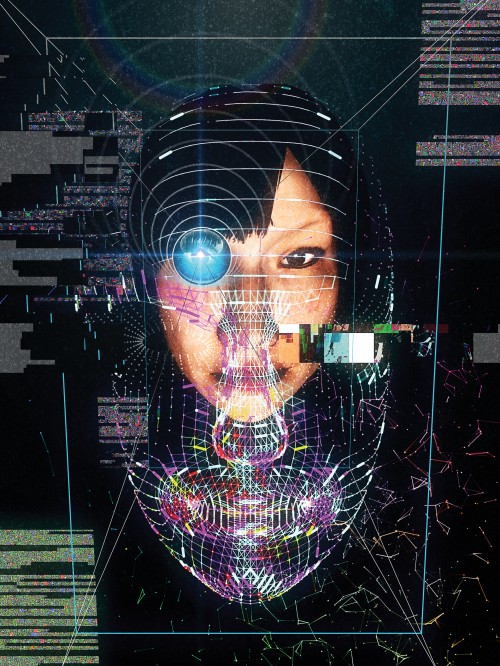In China you can pay with your face

Face detection systems in China now authorize payments, provide access to facilities and track offenders. Will other countries continue?
Shortly after walking through the door in the face of ++, a Chinese company worth approximately millions of dollars, see my face, unshaven and looking for a small lag of spray, flash up on a large screen near the entrance.
Having been added to a database, my face will now see automatic ally. It can also be used to monitor my movements through every room inside. As I walk through the offices of Face ++ (located in a suburb of Beijing), located in a suburb of Beijing, what appears appears on several screens, captured automatically from innumerable angles by the company's software. On a screen, a video shows that the software tracks 83 different points on my simultaneous face. It's a bit creepy, but undeniably impressive.
In recent years, computers have become incredibly good at recognizing faces, and technology is rapidly expanding in China for the sake of vigilance and convenience. Facial recognition can transform everything from surveillance to the way people interact every day with banks, shops and transportation services.
Face ++ technology is already being used in several popular applications. It is possible to transfer money through Alipay, a mobile payment application used by more than 120 million people in China, using only their face as credentials. Meanwhile, Didi, the dominant vehicle attraction company in China, uses Face ++ software to allow passengers to confirm that the person behind the wheel is a legitimate driver. (A "vitality" test, designed to prevent someone from duplicating the system with a photo, requires that people who are scanned move their heads or talk while the application scans them).
The technology plans to take off in China first because of the country's attitudes towards surveillance and privacy. Unlike, say, the United States, China has a large centralized database of ID card photos. During my time in Face ++, I saw how local governments are using their software to identify the alleged criminals in video surveillance cameras, which are ubiquitous in the country. This is especially impressive, although somewhat dystopian, because the analyzed footage is far from perfect, and because the archival photographs or other images in the archive may take several years.
Paying with your face
The innovative facial recognition technology that is finally accurate enough to be widely used in financial transactions and other everyday applications.
Why it matters Technology offers a secure and extremely convenient payment method, but it could generate privacy problems.
Key players- Face ++
- Baidu
- Alibaba
Available now
Facial recognition has existed for decades, but only now is it precise enough to be used in secure financial transactions. The new versions use deep learning, an artificial intelligence technique that is especially effective for image recognition because it makes the computer focus on the facial features that will most reliably identify a person (see "10 Innovative Technologies 2013: Deep Learning ").
"The facial recognition market is huge," says Shiliang Zhang, an assistant professor at Peking University, who specializes in machine learning and image processing. Zhang runs a laboratory not far from the Face ++ offices. When I arrived, his students were working furiously in a dozen cubicles. "In China, security is very important, and we also have many people," he says. "Many companies are working on that."
The employees simply show their face to gain access to the company's headquarters.
One such company is Baidu, which operates the most popular search engine in China, along with other services. Baidu researchers have published documents that show that their software rivals most humans in their ability to recognize a face. In January, the company tested this by participating in a television show featuring remarkably good people to identify adults from their baby photos. The Baidu system eclipsed them.
Face ++ points 83 points on one side. The distance between them provides a means of identification.
Now, Baidu is developing a system that allows people to pick up train tickets by showing their face. The company is already working with the government of Wuzhen, a historic tourist destination, to provide access to many of its attractions without a ticket. This involves scanning tens of thousands of faces in a database to find a match, which Baidu says he can do with 99 percent accuracy.
Jie Tang, an associate professor at Tsinghua University who advised the founders of Face ++ as students, says that the convenience of technology is what most attracts people in China. Some apartment complexes use facial recognition to provide access, and stores and restaurants seek technology to make the customer experience more fluid. Not only can he pay for things this way, he says, but the staff of some cafeterias now receives a notice by a facial recognition system when he enters: "They say: 'Hello, Mr. Tang.'"
Wow....that's amazing....I know WeChatPay is big in China, it's seldom to still see Yuan (physical currency) still being used.....wow....imagine just needing your face to make payments...wow....technology is definitely disrupting the conventional banking system....
If it is surprising it is not so bad, it speeds up the purchases. It has several positive things. Greetings! @creativo
Technology is great....it keeps changing the way we do things.... will be interesting to see what the future holds :)
if there are incredibly many things that I do not know, I like we are aware, thank you for your comments!
Only a pleasure =)